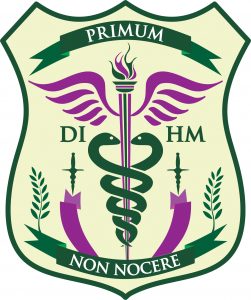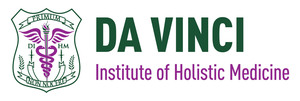Why Study Naturopathy and Holistic Medicine?
The popularity of Naturopathy and Holistic Medicine
Why Study Naturopathy and Holistic Medicine? Naturopathy is practiced in more than 80 countries, spanning every world region. Regulation of the naturopathic profession currently exists in jurisdictions in North America, India, Europe, and Latin America. The World Naturopathic Federation (WNF) has been set up to bring together naturopathic associations in different countries that support and work together toward regulation and educational accreditation and high educational standards.
The World Health Organization (WHO) that supports Traditional Medicine around the world is supporting the efforts of the World Naturopathic Federation in trying to standardize the education and practice of Naturopaths around the world.
The Da Vinci Institute of Holistic Medicine does not award degrees itself but works with the University of America (Curacuo & USA) which follows the highest standards of education for students interested in taking an accredited degree in Naturopathy and Holistic Medicine.
What is the history of naturopathy?

The modern form of naturopathy can be traced to 18th and 19th-century natural healing systems. Such systems include hydrotherapy (water therapy), which was popular in Germany, and nature cure, developed in Austria, based on the use of food, air, light, water, and herbs to treat illness.
Benjamin Lust, a German immigrant, first introduced naturopathy to the United States in 1902 when he founded the American School of Naturopathy. The school emphasized the use of natural cures, proper bowel habits, and good hygiene as tools for health. This was the first time that principles of a healthy diet, like increasing fiber intake and reducing saturated fats, became popular.
From the mid-1920s to 1940, the use of naturopathic medicine declined. It was not until the 1960s that naturopathic-style holistic medicine became popular again. Today, naturopaths are licensed care providers in many states. They offer a variety of natural therapies, including homeopathy, vitamin and mineral supplements, Traditional Chinese Medicine, relaxation techniques, and herbal remedies.
What is Naturopathy?
Naturopathy – also called naturopathic medicine – is a medical system that has evolved from a combination of traditional practices and healthcare approaches popular in Europe during the 19th century.
People visit naturopathic practitioners for various health-related purposes, including primary care, overall well-being, and treatment of illnesses.
In the United States, naturopathy is practiced by naturopathic physicians, traditional naturopaths, and other healthcare providers who also offer naturopathic services.
What Naturopathic Practitioners Do
Why Study Naturopathy and Holistic Medicine? Naturopathic practitioners use many different treatment approaches. Examples include:
- Dietary and lifestyle changes
- Stress reduction
- Herbs and other dietary supplements
- Homeopathy
- Manipulative therapies
- Exercise therapy
- Practitioner-guided detoxification
- Psychotherapy and counseling.
Some practitioners use other methods as well or, if appropriate, may refer patients to conventional health care providers.
Guiding Principles of a Naturopath
Since Hippocrates’ days over 2,500 years ago, the Father of Naturopathic Medicine devised certain principles of practicing Natural Healthcare which are still pertinent today. These are:
- First, do no harm: Utilize the most natural, least invasive, and least toxic therapies.
- The healing power of nature: Trust in the body’s inherent wisdom to heal itself.
- Identify and treat the causes: Look beyond the symptoms to the underlying cause.
- Physician as a teacher: Educate patients on the steps to achieving and maintaining health.
- Treat the whole person: View the body as an integrated whole in all its physical and spiritual dimensions.
- Prevention: Focus on overall health, wellness, and disease prevention.
In order to be a successful naturopathic doctor, students must have a strong interest and affinity for science. Besides knowing and understanding evidence-based science, students should be able to think in a complex manner about multiple causes of health problems.
The Need for Tradition and Complementary Medicine
The need for those who practice alternative medicine is a consideration. When there is more need for a certain career type, that opens up the doors to higher pay, an easier time finding work and having more options in where you decide to work.
In order to be a successful naturopathic doctor, students must have a strong interest and affinity for science. Besides knowing and understanding evidence-based science, students should be able to think in a complex manner about multiple causes of health problems.
A sense of community and commitment to volunteerism is also important, as many naturopathic doctors provide a valuable link to natural medicine for the underserved. Having good communication skills as a naturopathic physician is vitally important. Becoming an educator to those in the community about how to care for themselves is a significant aspect of the naturopathic career.
Benefits of Obtaining a Doctorate in Naturopathy and Holistic Medicine
 One of the main benefits of getting a Doctorate in Naturopathy and Holistic Medicine from the University of America (Curacuo & USA) is the desire to help others in a non-invasive way. You will possess that knowledge base to help patients suffering from a wide array of diseases, including chronic diseases that are not being helped by medical treatments such as medication, as suppressing symptoms is not the way to treat complex diseases.
One of the main benefits of getting a Doctorate in Naturopathy and Holistic Medicine from the University of America (Curacuo & USA) is the desire to help others in a non-invasive way. You will possess that knowledge base to help patients suffering from a wide array of diseases, including chronic diseases that are not being helped by medical treatments such as medication, as suppressing symptoms is not the way to treat complex diseases.
Restoring health and balance requires identifying the underlying causative factors and eliminating these, while concomitantly helping the body to obtain optimal balance and restoration. It is highly fulfilling on a Spiritual level for practitioners to be able to achieve this with complex patients.
When you qualify, you will be able to set up practice in your own country and begin seeing clients, working to your own schedule. Alternatively, you can try working at other Naturopathic or Holistic Health centers in your vicinity in order to build up some more clinical practice before going it alone.
So if you are a school leaver and want to enter an exciting career as a healthcare professional in the field of Naturopathy and Holistic Medicine, then we can certainly take you under our wing and train you from beginning to end – learning initially all the biomedical sciences, as well as some interesting aspects of natural medicine and learning in a clinical training environment how to apply this in practice.
The University of America’s curriculum has been designed so that students can complete the Bachelor, Master, and Doctoral degree in 5 years approximately, even though you may begin practicing immediately after the Bachelor’s in Naturopathy and Holistic Medicine.





